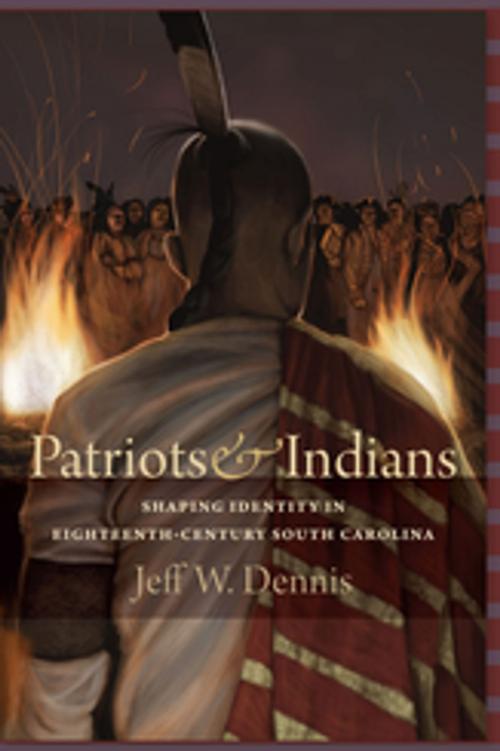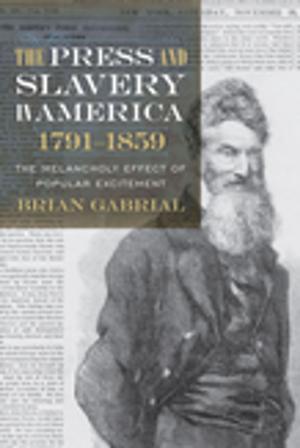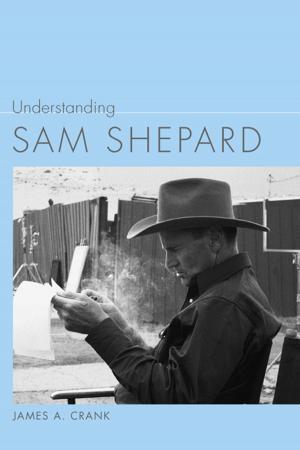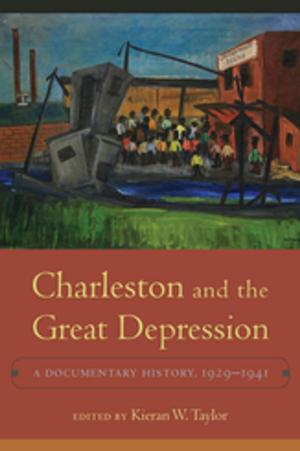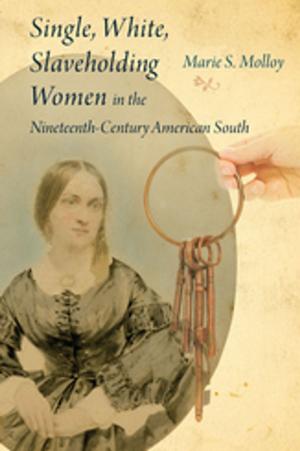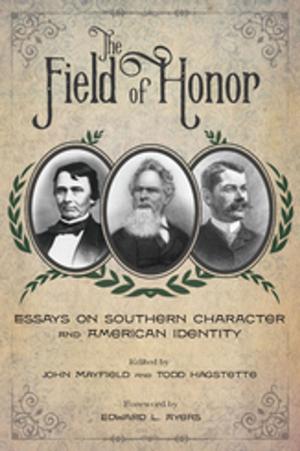Patriots and Indians
Shaping Identity in Eighteenth-Century South Carolina
Nonfiction, History, Americas, United States, Revolutionary Period (1775-1800), Social & Cultural Studies, Political Science| Author: | Jeff W. Dennis | ISBN: | 9781611177572 |
| Publisher: | University of South Carolina Press | Publication: | May 15, 2017 |
| Imprint: | University of South Carolina Press | Language: | English |
| Author: | Jeff W. Dennis |
| ISBN: | 9781611177572 |
| Publisher: | University of South Carolina Press |
| Publication: | May 15, 2017 |
| Imprint: | University of South Carolina Press |
| Language: | English |
Patriots and Indians examines relationships between elite South Carolinians and Native Americans through the colonial, Revolutionary, and early national periods. Eighteenth-century South Carolinians interacted with Indians in business and diplomatic affairs, as enemies and allies during times of war and less frequently in matters of scientific, religious, or sexual interest. Jeff W. Dennis elaborates on these connections and their seminal effects on the American Revolution and the establishment of the state of South Carolina. Dennis illuminates how southern Indians and South Carolinians contributed to and gained from the intercultural relationship, which subsequently influenced the careers, politics, and perspectives of leading South Carolina patriots and informed Indian policy during the Revolution and early republic. In eighteenth-century South Carolina, what it meant to be a person of European American, Native American, or African American heritage changed dramatically. People lived in transition; they were required to find solutions to an expanding array of sociocultural, economic, and political challenges. Ultimately their creative adaptations transformed how they viewed themselves and others. While Native Americans were not the only “others” of the Revolutionary world, they were nonwhite, nonslave, and non-Christian allies of Britain who inhabited many millions of acres of highly arable land. For radical spokesmen such as William Henry Drayton, along with many white people on the frontier, Indians were viewed as a defining enemy during the American Revolution. Dennis contends that the stronger the attachment these men felt to the Whig cause and their aversion to the British, the harsher their attitudes toward Indians. In contrast the closer they were to Indians, socially and psychologically, the more lenient they appeared toward Native Americans. This difference of opinion carried over into national policies toward Native Americans. Following independence, some South Carolina patriots such as Andrew Pickens imagined an American identity broad and honorable enough to include Indians.
Patriots and Indians examines relationships between elite South Carolinians and Native Americans through the colonial, Revolutionary, and early national periods. Eighteenth-century South Carolinians interacted with Indians in business and diplomatic affairs, as enemies and allies during times of war and less frequently in matters of scientific, religious, or sexual interest. Jeff W. Dennis elaborates on these connections and their seminal effects on the American Revolution and the establishment of the state of South Carolina. Dennis illuminates how southern Indians and South Carolinians contributed to and gained from the intercultural relationship, which subsequently influenced the careers, politics, and perspectives of leading South Carolina patriots and informed Indian policy during the Revolution and early republic. In eighteenth-century South Carolina, what it meant to be a person of European American, Native American, or African American heritage changed dramatically. People lived in transition; they were required to find solutions to an expanding array of sociocultural, economic, and political challenges. Ultimately their creative adaptations transformed how they viewed themselves and others. While Native Americans were not the only “others” of the Revolutionary world, they were nonwhite, nonslave, and non-Christian allies of Britain who inhabited many millions of acres of highly arable land. For radical spokesmen such as William Henry Drayton, along with many white people on the frontier, Indians were viewed as a defining enemy during the American Revolution. Dennis contends that the stronger the attachment these men felt to the Whig cause and their aversion to the British, the harsher their attitudes toward Indians. In contrast the closer they were to Indians, socially and psychologically, the more lenient they appeared toward Native Americans. This difference of opinion carried over into national policies toward Native Americans. Following independence, some South Carolina patriots such as Andrew Pickens imagined an American identity broad and honorable enough to include Indians.
